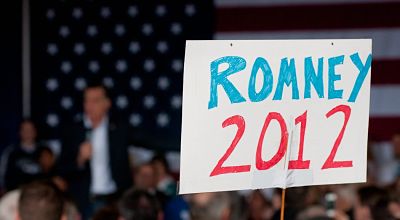Most Pastors Against Pulpit Endorsements
Nearly 90 percent of pastors believe they should not endorse candidates for public office from the pulpit, according to a recent survey by LifeWay Research. The survey also revealed that 44 percent of pastors personally endorsed candidates, but did so outside of their church role.
The survey of 1,000 Protestant pastors found that only 10 percent believe pastors should endorse candidates from the pulpit. Eighty-seven percent believe (71 percent strongly and 16 percent somewhat) pastors should not endorse candidates for public office from the pulpit. Three percent of pastors are not sure.
For comparison, LifeWay Research found in a December 2010 survey that 84 percent of pastors said they should not endorse candidates from the pulpit.
Differences emerged between pastors who consider themselves “evangelical” and those who self-identify as “mainline.” Eighty-six percent of evangelical pastors believe pastors should not endorse a candidate from the pulpit, as compared to 91 percent of mainline pastors.
The amount of pastors who say they should not endorse candidates from the pulpit also varies according to political affiliation. Among pastors who call themselves Democrats, 98 percent believe political endorsements should not be made from the pulpit compared to 90 percent of Independents and 82 percent of Republicans.
Regional comparisons show that pastors of churches in the Midwest (91 percent) are the most likely to say pastors should not endorse candidates from the pulpit. This is significantly different from pastors in the South (84 percent) while pastors in the Northeast and West (both 89 percent) are in between.
The results of the survey come just prior to the Alliance Defending Freedom “Pulpit Freedom Sunday” on Oct. 7. The alliance has encouraged pastors to challenge the IRS ban on political endorsements from the pulpit by preaching politics and recommending candidates one month prior to the presidential election.
An amendment to the IRS tax code in 1954 prohibits tax-exempt organizations, such as churches, from endorsing political candidates for public office. According to the IRS, “violation of this prohibition may result in denial or revocation of tax-exempt status and the imposition of certain excise tax.”
The Alliance Defending Freedom believes the law violates the First Amendment. In order to challenge the law in court, it first has to be applied to a particular church or pastor. The group has encouraged pastors to talk about candidates and make specific recommendations on Oct. 7. The sermons are to be recorded and sent to the IRS.
“Previous research has shown that pastors believe the government has no place in determining what is and is not said from their pulpits regarding candidates,” McConnell said. “Yet most pastors don’t believe endorsement of candidates should be made from the pulpit.”
Endorsements Outside the Pulpit
The LifeWay Research survey also found that less than half of Protestant pastors (44 percent) personally endorsed candidates this year outside of their church role. Fifty-two percent say they disagree with the statement, “I personally endorsed candidates for public office this year, but only outside of my church role.”
McConnell noted that only one-third of pastors strongly disagree that they have endorsed candidates outside of their church role.
“Clearly most pastors have opinions on who the best candidates are, and those convictions may be heavily dependent on biblical principles,” McConnell said. “However, very few pastors choose to make those endorsements from the pulpit.”
Pastors of churches with less than 50 members are the most likely at 56 percent to say they had personally endorsed candidates for public office outside of their church role.
Pastors in small cities (49 percent) are more likely to say they had endorsed candidates outside of their church role than pastors in large cities (33 percent).
While there are no differences between evangelicals and mainline pastors, differences emerged among party affiliation. Self-described Independents (34 percent) are least likely to say they endorsed candidates outside their church role compared to Republicans (51 percent) and Democrats (54 percent).
Current Presidential Campaign
While there has been much talk about the beliefs of both presidential candidates during the current campaign, few pastors believe there has been too much focus on religion.
The survey revealed only 17 percent of pastors believe the election cycle has been too religious compared to 77 percent who say it has not been too religious and 5 percent who are not sure.
“Pastors do not see the election as a referendum on religion in the U.S.,” McConnell said. “In fact, very few pastors believe this election cycle has been very religious at all.”
Party affiliations again reveal differences in opinion on this issue. Among pastors who call themselves Republican, only 9 percent believe the election cycle has been too religious, as compared to 20 percent of Independents and 39 percent of Democrats.
Also, mainline pastors at 22 percent are more likely to believe the election cycle has been too religious, compared to 14 percent of evangelical pastors.














































